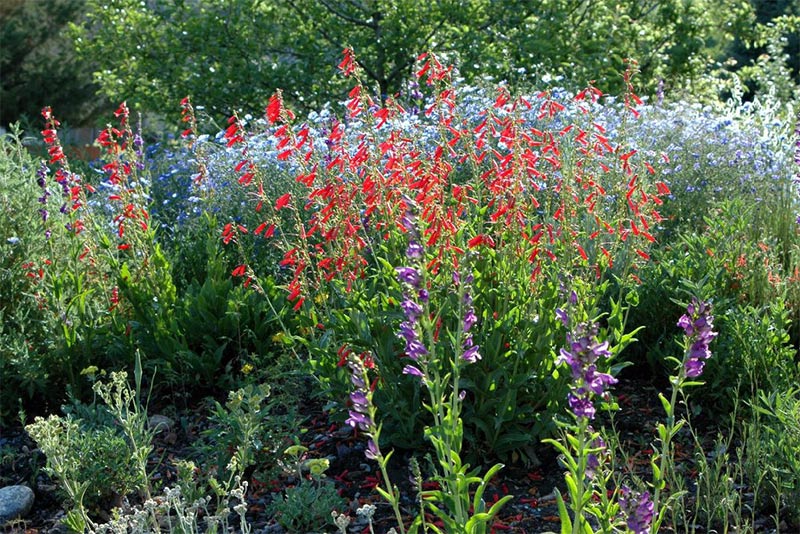Beekeeping (Gardening For Pollinators)
Are you interested in gardening for pollinators? Beekeeping is a fascinating and rewarding way to contribute to the health of our environment. Whether you have a small backyard or a sprawling garden, beekeeping can be a fun and educational hobby for anyone, including a 13-year-old like you. So, get ready to discover the wonderful world of bees and learn how you can help protect these essential pollinators!
When you think of bees, you might picture them buzzing around flowers, collecting pollen and nectar. But did you know that these tiny creatures play a vital role in our ecosystem? Bees are responsible for pollinating a significant portion of the world’s food crops, including fruits, vegetables, and nuts. Without them, our plates would look much emptier. By becoming a beekeeper, you become an important ally in conserving these invaluable insects.
Beekeeping is not only beneficial for the environment but also an opportunity to learn about the intricate and fascinating lives of bees. From understanding their unique social structure to witnessing the mesmerizing honey-making process, the world of beekeeping is full of wonders. So, put on your beekeeping suit, grab your hive tool, and get ready to embark on a delightful journey into the buzzing world of bees!
- Research beekeeping basics and safety measures
- Choose the right hive and equipment
- Find a suitable location for your hive
- Obtain bees and introduce them to the hive
- Maintain the hive, monitor health, and harvest honey
Get ready to embark on an educational and rewarding journey as you dive into the world of beekeeping!

Beekeeping (Gardening for Pollinators): A Guide to Cultivating a Buzzworthy Garden
Beekeeping, also known as gardening for pollinators, is a rewarding and essential practice. Not only does it provide a habitat for bees and other pollinators, but it also allows you to contribute to the health of your local ecosystem. Whether you’re a seasoned gardener or just starting out, beekeeping can add a vibrant buzz to your garden. In this article, we’ll explore the benefits of beekeeping, tips for getting started, and how to create an optimal environment for your buzzing companions.
The Importance of Beekeeping (Gardening for Pollinators)
Beekeeping, or gardening for pollinators, plays a critical role in our ecosystem. Bees and other pollinators are responsible for the fertilization of flowering plants, including fruit trees, vegetables, and flowers. Without the help of these tiny pollinators, many of our favorite foods would disappear, and the biodiversity of our planet would suffer. By becoming a beekeeper and creating a pollinator-friendly garden, you can directly contribute to the conservation of these crucial creatures.
The Benefits of Beekeeping
Beekeeping offers numerous benefits, both for the environment and for the beekeeper themselves. Firstly, beekeeping helps to ensure the survival of pollinator populations, which are currently facing numerous threats such as habitat loss and pesticide use. By providing a safe and pesticide-free haven for bees, you can protect the health and vitality of these crucial insects.
Secondly, beekeeping can improve the health and productivity of your garden. Bees are incredibly efficient pollinators, increasing the yield of your fruit trees, berry bushes, and vegetable plants. They can also enhance the growth and abundance of flowers, adding beauty and color to your outdoor space. Additionally, the honey produced by your bees can be harvested and enjoyed, providing a sweet and natural treat.
Lastly, beekeeping offers a unique opportunity to connect with nature and gain a deeper understanding of the intricate relationships within our ecosystem. Watching bees diligently collect nectar and pollen, witnessing hives thrive and grow, and observing the lifecycle of these remarkable creatures can be a fulfilling and educational experience.
Tips for Starting Your Beekeeping Journey
If you’re ready to embark on the journey of beekeeping, there are a few essential tips to keep in mind. Firstly, research local regulations and guidelines regarding beekeeping in your area. Check if there’s a need for registration, permits, or specific hive placement requirements. This will ensure that you’re operating within the legal framework and avoiding potential conflicts with neighbors or local authorities.
Next, familiarize yourself with the different types of hives available and choose one that suits your needs and preferences. The most common types are Langstroth, top-bar, and Warré hives. Each has its unique characteristics, so it’s essential to understand their pros and cons before making a decision.
Once you have your hive, it’s time to choose your bees. Consider purchasing a nucleus colony or package bees from a reputable bee breeder or supplier. Be sure to select bees that are suited to your climate and have a good reputation for honey production and disease resistance.
Creating a Pollinator-Friendly Garden
When it comes to creating a garden that attracts and supports pollinators, there are a few key factors to consider. Firstly, choose a variety of plants that provide nectar and pollen throughout the year. This will ensure a continuous food source for your bees and other pollinators. Native wildflowers, fruit trees, and herbs are excellent choices for a pollinator-friendly garden.
Additionally, avoid using pesticides and herbicides in your garden, as these can harm bees and other beneficial insects. Instead, embrace organic gardening practices, such as companion planting and natural pest control methods. Creating a diverse and welcoming habitat, with shelter such as bee hotels and water sources, will also attract a wider range of pollinators to your garden.
In conclusion, beekeeping, or gardening for pollinators, is a rewarding and essential practice for both gardeners and the environment. By becoming a beekeeper, you can contribute to the conservation of vital pollinator populations while also enjoying the benefits of a thriving garden. Remember to research local regulations, choose the right hive and bees, and create a pollinator-friendly garden to ensure the success of your beekeeping adventure. Start cultivating your buzzworthy garden today!
Key Takeaways: Beekeeping (Gardening for Pollinators)
1. Beekeeping is a wonderful way to support pollinators and help them thrive.
2. By creating a bee-friendly garden, you can provide a habitat for bees to pollinate your plants.
3. Beekeepers can harvest honey, beeswax, and other bee products for personal use or to sell.
4. It is important to learn about beekeeping practices, including proper hive maintenance and swarm control.
5. By practicing sustainable beekeeping, we can contribute to the conservation of these vital pollinators.
Frequently Asked Questions
Welcome to our FAQ section on Beekeeping (Gardening for Pollinators)! Here, we address some common questions about the practice of beekeeping and how it can contribute to the health of your garden and local ecosystem. Read on to find out more.
1. Why is beekeeping beneficial for pollinators?
Beekeeping is beneficial for pollinators because it creates a safe and consistent habitat for bees to thrive. As bees visit flowers to collect nectar and pollen, they inadvertently transfer pollen from one flower to another, aiding in the pollination process. By keeping bees in your garden, you provide them with a reliable source of food and shelter, which helps to sustain their populations.
Additionally, beekeeping can help support local ecosystems by increasing pollination rates for plants in the area. This enhanced pollination can boost fruit and vegetable yields, fulfill the needs of native plant species, and contribute to the overall biodiversity of your garden and surrounding environment.
2. Do I need a large space to practice beekeeping?
No, you don’t need a large space to practice beekeeping. Bees can be kept in gardens of various sizes, including urban balconies or small backyard gardens. As long as you provide them with adequate forage (plants that provide nectar and pollen), a source of freshwater, and suitable shelter, bees can thrive in a small space.
You can also explore alternative beekeeping methods, such as rooftop beekeeping or using observation hives, which can be ideal for those with limited space. These methods allow you to keep bees in urban areas while still reaping the benefits of beekeeping and supporting pollinators.
3. What are some plants that attract pollinators?
There are several plants that attract pollinators, including bees. Some popular choices include lavender, sunflowers, wildflowers, borage, and herbs such as mint and thyme. These plants are known for their abundant nectar and pollen, which attract bees and other pollinators.
It’s important to select a variety of plants that bloom at different times throughout the year, as this provides a continuous source of food for the bees. By creating a diverse and pollinator-friendly garden, you can ensure that bees have access to the resources they need to thrive.
4. Can I start beekeeping without prior experience?
Yes, you can start beekeeping without prior experience. However, it’s important to acquire knowledge and skills before diving into beekeeping. Consider taking a local beekeeping course or joining a beekeeping club to learn the basics and gain hands-on experience from experienced beekeepers.
Additionally, it’s crucial to familiarize yourself with local regulations and guidelines on beekeeping, as these can vary from one location to another. By starting with a strong foundation of knowledge and support, you can increase your chances of success in beekeeping.
5. How can I attract bees to my garden if I don’t want to become a beekeeper?
If you don’t want to become a beekeeper but still want to attract bees to your garden, there are several steps you can take. First, ensure that your garden provides an abundance of flowers with nectar and pollen. Select a variety of flowering plants that bloom at different times to offer a continuous food source.
You can also create a bee-friendly habitat by providing shelter, such as bee houses or insect hotels, and leaving some areas of your garden undisturbed for nesting sites. Additionally, avoid using pesticides, as these can be harmful to bees and other beneficial insects in your garden. By making your garden a welcoming environment for bees, you can help support their populations and contribute to pollinator conservation.

11 MUST Grow Pollinator Garden Plants 🐝
Summary
Bees are important for our gardens because they help plants make fruits and vegetables. Beekeeping is a way to keep bees so they can do their job. To start beekeeping, you need a beehive, beekeeper’s suit, and some basic tools. Bees need food, water, and a safe place, so you have to take care of them. Beekeeping is fun and helps us take care of nature!
Gardening is not just about plants, it’s also about helping pollinators like bees. By creating a bee-friendly garden, we can attract bees and help them thrive. Some ways to do this are by planting flowers that bees love and avoiding harmful pesticides. Bees need our help, and by becoming a beekeeper or creating a pollinator-friendly garden, we can play a role in protecting these important creatures.
